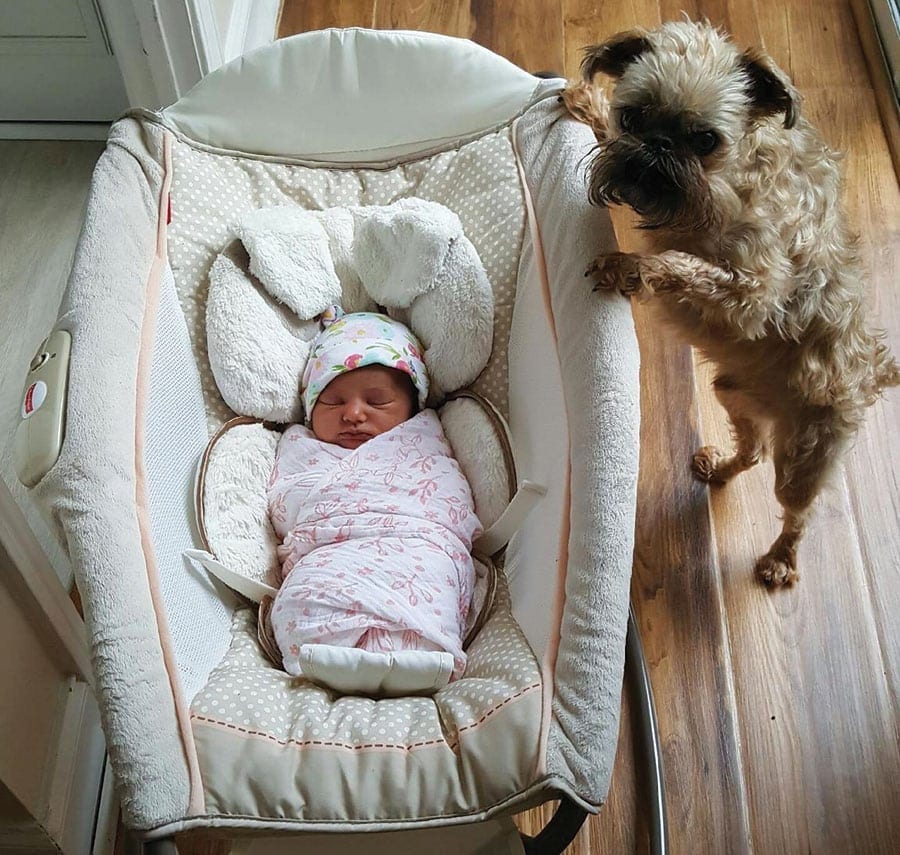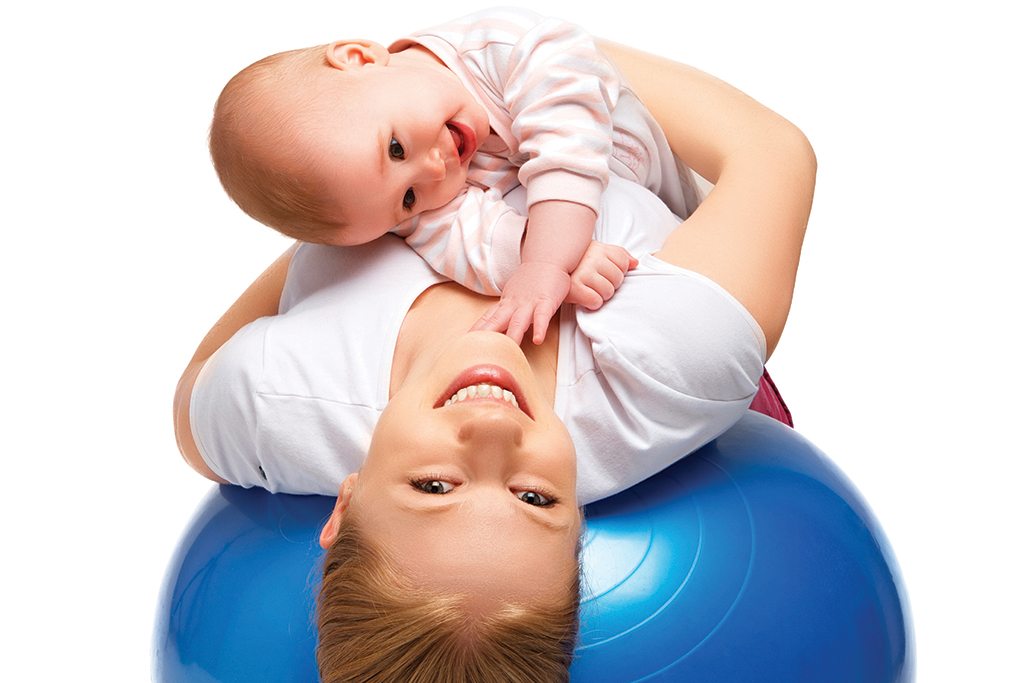Baby Advice From Five Atlanta Pediatricians
Table of Contents
Lindsey Ransom, M.D.
West Atlanta Pediatrics
Blake, 3; husband, JR
Breastfeeding is one of those topics that most pregnant women expect to come naturally. It may not work out as well for some moms. For those women, I encourage them to nurse as much as possible, but at least 1-2 times a day to help their babies get the benefits of breastfeeding. Breastfeeding skin-to-skin helps with bonding between mom and baby. Breast milk also strengthens the immune system and decreases the risk of many viruses and infections, and it may benefit mom by decreasing risk of breast, ovarian and uterine cancer.
Vaccines are safe, and keep us and our babies safe. Vaccination can mean the difference between life and death. Vaccine-preventable diseases haven’t gone away, thus vaccines are still important.
The American Academy of Pediatrics recommends no screen time before the age of 2, but these days, there’s a TV in each room, everybody has a cell phone and a tablet. If you do expose them to screen time, I recommend it has an educational purpose – learning something about colors or numbers – and is not just a mindless activity. Screen time doesn’t allow for the baby and parent to connect, as it takes away from one-on-one time.
Dr. Ransom is a board certified pediatrician and a Fellow of the American Academy of Pediatrics. She completed her medical training at the Medical College of Georgia in Augusta and her residency at Morehouse School of Medicine in Atlanta. Her hobbies include spending time with family and friends, traveling and reading.

Adele H. Goodloe, M.D.
Northside Pediatrics
Eliza, 5; Mike and Linnea, 3; husband, Britton
With my first child, I remember being very stressed about all the ‘stuff’ that I needed. I poured over websites and resource books trying to figure out what was the best stroller, crib, bouncy seat, high chair, bibs, blanket and on and on. I quickly learned that all you really need to bring baby home is a car seat and firm, flat sleeping surface. Everything else really is just extra. You and your baby will be just fine without it!
The first six weeks after having a baby are stressful. I remember sitting in my pediatrician’s office for our 2 week checkup feeling overwhelmed and exhausted, thinking ‘what have I gotten myself into?’ Infants don’t give a lot of positive feedback during these early days. For the first month of life, if all your baby is doing is feeding, pooping, crying and sleeping – you guys are right on target. Don’t worry – parenthood does get a lot more fun.
The learning curve for parenthood is steep. There are so many new experiences and challenges (that you will overcome!) with your entry into parenthood. Be kind to yourself during this time period and know who is in your support network.
Dr. Goodloe grew up in Peachtree City and is a University of Georgia graduate. She attended Mayo Medical School in Minnesota and then performed pediatric residency at Vanderbilt Children’s Hospital. Goodloe joined Northside Pediatrics in 2016. She leads the Woodstock Walk With a Doc Chapter, hosting twice monthly walks for the community.

Linda Kelly, M.D.
Dunwoody Pediatrics
Chase, 21; Emily, 18; Danielle, 15; husband, Shaun
Fever is a symptom that an inflammatory process is occurring in the body. An elevated temperature is defined as a temperature above 38 degrees C or 100.4 degrees F. One common cause of an elevated temperature is an infection, and in the infant younger than 3 months of age, the risk of serious bacterial infection, UTI and meningitis is around 10%. Any temperature above 100.4 degrees F in an infant needs to be evaluated by a doctor. Infants younger than 3 months of age should not be given Tylenol unless instructed to by their pediatrician. Children older than 3 months of age to 3 years of age who have a temperature above 100.4 degrees F for more than three days should be evaluated by a doctor. Children in the age bracket of 3 months to 3 years should also be seen if their temperature is above 102 degrees F, regardless of how long the fever has been present. A child of any age with a temperature above 104 degrees F should be seen by their physician.
Temperature may be measured by one of many thermometer types: rectal, oral, axillary (under the arm), via the tympanic membrane (ear) or by temporal artery (forehead). An axillary temperature may be used to evaluate an infant less than 4 weeks of age, and for an infant greater than 4 weeks of age a rectal temperature is the most accurate.
Dr. Kelly attended the University of Pittsburgh and Temple University School of Medicine. She completed her residency at Children’s Hospital of Pittsburgh. She is board certified in Pediatrics and a Fellow of the American Academy of Pediatrics. She was chosen as one of America’s Top Physicians by Consumer Research Council of America.

Ashley Stolle, M.D.
Gwinnett Pediatrics and Adolescent Medicine
Livi, 15; Kate, 13; Lex, 10; husband, David
I highly recommend every new parent get a copy of the American Academy of Pediatrics’ book entitled ‘Caring for Your Baby and Young Child from Birth to Age 5.’ It is full of great information on basic childcare, common illnesses, developmental milestones and a new parent’s most common questions or concerns.
Vaccinate your baby! Stick with the research-based schedule recommended by the American Academy of Pediatrics and the Centers for Disease Control. It is the single most important thing you can do to protect your child from deadly disease. Vaccines are among the most rigorously tested and safest medical products on the market and save millions of lives.
One common concern is constipation. Some babies will have a bowel movement as infrequent as every 5-7 days. It can be normal for your child to have a bowel movement every few days so long as he is feeding well, and the stools are soft like peanut butter. If your baby is missing two feedings in a row, is refusing to eat or seems very uncomfortable with feedings, you should see your doctor. Babies who spit up excessively or have projectile vomiting after each feed should seek care. You should always call a doctor right away if your newborn baby vomits a bright yellow/green color, as this could be a sign of an intestinal blockage.
Dr. Stolle went to the University of Virginia for her bachelors and for medical school. She performed her residency at Emory University School of Medicine. She married her college sweetheart, and she and her family have a golden doodle named Sammy. She believes practicing pediatrics keeps her young and appreciative of each day.

Nicholas Kelley, M.D.
Children’s Medical Group
Victoria, 3 1/2; twins due in October; wife, Vang
Babies’ skin is sensitive, so you want to be sure not to use anything that has any scent to it. Make sure the people who are holding the baby aren’t wearing really strong perfume or cologne, because their skin can have reactions to it. If you bathe them every day, you wash all the good oils off their body, which can essentially dry out their skin. Twice a week is usually the norm. Do not bathe them until their umbilical cord falls off. You can sponge bathe them, but the stump has to stay dry. Make sure water is lukewarm to the touch, and test it before you use it.
Always take notes. When you’re sitting with your child at 2 a.m. and you think, ‘I need to ask the doctor about this, but I don’t want to call,’ write it down. Because you’ll come to your visit with us, and say, ‘I had this great question for you, but I’m so tired, and I can’t remember it.’ I expect my parents to come in with a list of questions, because it means you’re actively thinking about your child.
If you’re worried about it, call us. There’s no silly question when you’re a new parent. In general, you have a lot of things working against you. All of a sudden, you have this huge responsibility of a new life you’re supposed to be taking care of, you’re trying to figure out how to not screw it up, you’re immensely sleep deprived, you have this baby doing these really funny things that don’t seem like they’re normal. Our job is to be that filter for you.
Originally from McDonough, Dr. Kelley went to the Georgia Institute of Technology and attended medical school at Mercer University. Before joining Children’s Medical Group in 2019, he worked for Prisma Health at Spartanburg Pediatric Health Center and Spartanburg Night Clinic. His medical interests include newborn care, mental health, asthma and adolescent care.
– Emily Webb








